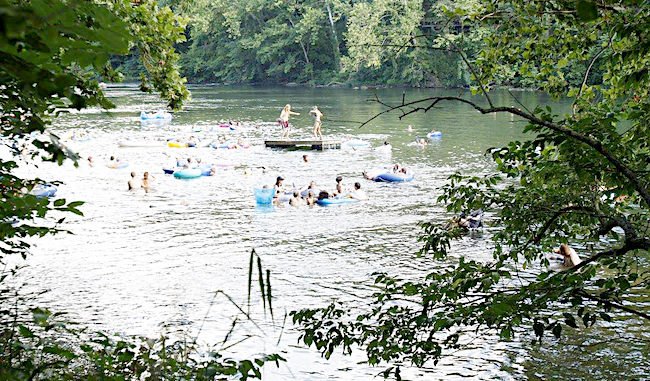
By Randy Arrington, publisher
The recent drama that played out through the permitting process for the Alma plant served as a great example of democracy in action.
The people voiced valid opposition to the issuance of a state permit based on real environmental concerns. The applicant, a Harrisonburg businessman, chose to follow the will of the community, rather than chase a few more dollars.
In many ways, it’s how the system should work. It’s why we have public input and public meetings. The masses have to feel empowered a little by the process, and even more by the results.
But as the moment passes and the battle has been won — don’t miss out on two key takeaways:
- A businessman chose people over profits;
- And DEQ officials are there to help protect the community, not work against it.
As to the first point, a lot of credit should be given to Jody Salyards. The owner of the metal recycling center withdrew a request to renew a permit that would allow the discharge of 1 million gallons of treated wastewater into the Shenandoah River each day.
Salyards had no intention of actually discharging anything from the Alma plant, where the wastewater treatment plant was not operational and the discharge pipe was cemented shut years ago. And he had no intention of operating a poultry processing facility as the permit allows. However, he was selling nutrient credits he earned from not discharging at the site, to a Hinton poultry processing plant.
The trading of nutrient credits is perfectly legal. The state program was created with the best of intentions to help protect the Chesapeake Bay. But many citizens raised the issue that “we all live downstream” and trading credits to Hinton still allows “pollution” of the same waterway, just further downstream.
Perhaps the nutrient credit system needs to be reevaluated at the state level, but Salyards was acting within the system that is in place. He should be given credit for voluntarily walking away.
To the second point — government officials are an easy target, and local citizens gave DEQ representatives an earful at the March 9 public meeting in Stanley. Let’s be honest, some folks were a little rude.
While the issue was of grave importance and the emotions shown at the meeting are understandable, the angst poured onto these state officials was misplaced and unmerited. Air concerns, voice fact-based opposition — but don’t throw darts at the middle man messenger who has both hands tied behind their backs.
DEQ officials, just like any other state (or local) agency, has to follow a specific set of rules. For example — and this point was made at the March 9 public meeting several times — DEQ can not evaluate a permit application based on the speculation of how the applicant may utilize that permit. They base their evaluation on specific criteria focusing on monitoring and controlling the handling of pollutants that must be disposed of in some way. Whether it’s solid waste at landfills, liquid discharge into a waterway, or the fumes coming from a smokestack, the Department of Environmental Quality is there to protect everyone by protecting the ground, water and air that we all share. We should all be able to agree on that. They are there for us.
Sometimes the restraints of guidelines and regulations put in place by legislators create mandated shackles that limit what these representatives of various agencies can and can not do.
And often, it’s the general public’s lack of understanding of the process that can lead to unnecessary fear and anger. For example, many people in the county believe that if the permit had been approved, the Alma plant would have been able to dump 1 million gallons of raw sewage daily into the South Fork. That is not true.
Any discharge that came from the site’s wastewater treatment plant would have been tested and monitored to meet state standards. In other words, the water going into the river would have been much cleaner than the river water itself.
Even if the permit had been approved, it would have taken millions of dollars to upgrade the wastewater treatment system. The design and construction of the new facility would be monitored and regulated by DEQ. Future testing and monitoring would be conducted by DEQ.
There is a system in place to protect us. No, it doesn’t always work. It takes an active citizenry to voice concerns and help improve the system.
Join the process — don’t sit on the sidelines. If you do, democracy actually works… most of the time. Well maybe just some of the time — but it’s still worth the fight. Keep it up.



This issue is far from over
Thanks so much Randy for your explanations. Really appreciate.